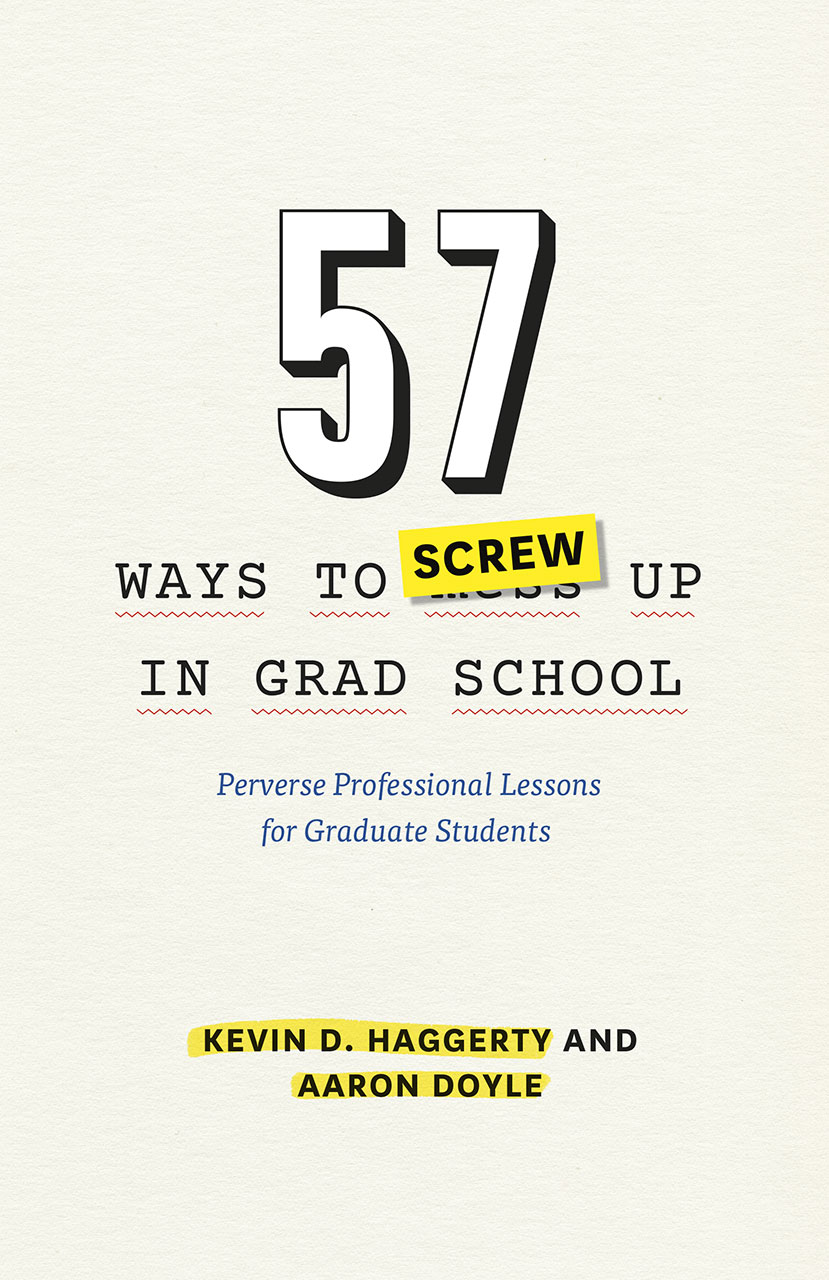
If you’re like most graduate students, you’ve probably thought to yourself at one time or another, “I really hope I’m doing this whole grad school thing right.” Let it be known that you are not alone with these thoughts. If you’re concerned about wreaking havoc on your grad school career, or are just curious if you’re on the right track, authors Aaron Doyle and Kevin D. Haggerty are here to help. They have put together a fantastic little book aptly titled “57 Ways to Screw Up in Grad School: Perverse Professional Lessons for Graduate Students.”
“57 Ways” is easy to read and fairly breezy — but don’t dismiss its thin stature and readability as a sign that it’s unhelpful. In fact, the advice within is incredibly insightful. First and foremost, the book is well-organized, and conveniently divided into sections focusing on different aspects of grad student life. Topics include finding the right school and mentor, pitfalls to avoid when dealing with peers, and managing the (seemingly fictional) work-life balance. Furthermore, the authors offer real-life examples to make situations relatable. Notably, the book does a good job of encompassing different levels of the grad school experience, from Master’s to Ph.D level advice. They also really cover the waterfront of ways to screw up. While this may seem daunting, it’s a necessary premise on which to base a book about grad school.
However, as a biomedical graduate student, I noticed one downside to “57 Ways.” It lacks attention to issues in biomedical Ph.D programs, and largely focuses on social science graduate programs. Both Doyle and Haggerty are trained as social scientists, so it’s not surprising that they would write largely about pitfalls in those programs. To really encompass all the ways to mess up in grad school, it would have been nice to include someone with a biomedical Ph.D as a third author. Although, this is a minor critique — a large amount of advice in the book still pertains to all Ph.D programs.
Indeed, halfway through “57 Ways,” I found myself thinking, “Man, I wish I’d had this book when I was thinking of applying to grad school.” (Serendipitously, I managed to avoid most of the pitfalls described within.) Indeed, the book is largely intended for potential applicants and newly minted grad students who are trying to get a grip on grad school life. For instance, early parts of the book detail how important it is to select an advisor based on research interests, funding, and “best fit” rather than superficial reasons, such as how “trendy” they are. For most advanced students (2 years or more), this advice is either incredibly obvious or comes, tragically, too late. However, later parts of the book can be useful for upper-level students, particularly the sections detailing career advice, publishing dilemmas, and complex social situations.
Now, let’s face facts. You will screw up in grad school, no matter who you are, no matter what year or skill level. It’s almost guaranteed. However, reading “57 Ways” just might help you to avoid some of the many ways to mess up. While biomedical students may want to supplement their reading, I highly recommend “57 Ways to Screw Up in Grad School” for all grad students.
“57 Ways to Screw Up in Grad School” is available to UNC students through the University Libraries, and to BBSP/Biomedical Sciences students through the TIBBS Career Library.
Peer edited by John Casachahua
Follow us on social media and never miss a Book Review:
